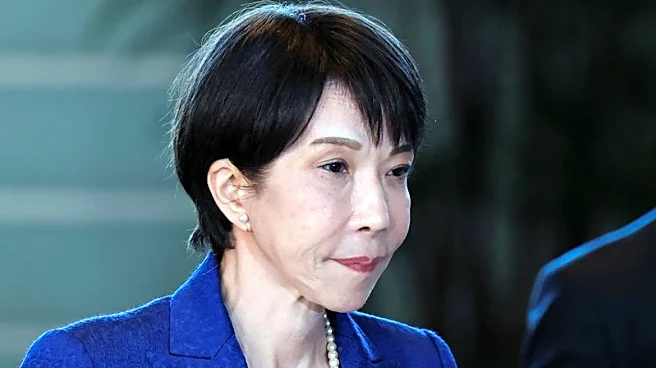Rapid Read • 8 min read
South Africa is facing significant economic challenges due to new U.S. tariffs set to take effect on Friday. These tariffs, which impose a 30% rate on most imports from South Africa, have put an estimated 30,000 jobs at risk, according to South African officials. The tariffs are among the highest imposed by the U.S., South Africa's third-largest trading partner after China and the EU. The South African government is actively seeking to mitigate the impact by exploring new markets outside the U.S. and engaging in ongoing consultations with affected sectors such as automotive and agriculture. President Cyril Ramaphosa has emphasized the need for swift adaptation and continued engagement with the U.S. to protect export industries and maintain market access.
AD
The imposition of these tariffs by the U.S. poses a severe threat to South Africa's economy, particularly affecting the manufacturing and farming sectors. With an official unemployment rate of 32.9% and a youth unemployment rate of 46.1%, the potential loss of 30,000 jobs could exacerbate the country's economic struggles. The tariffs could lead to increased economic instability and force South Africa to diversify its export markets rapidly. The situation highlights the broader implications of international trade policies and their impact on global economic relations, particularly for countries heavily reliant on exports.
South Africa is taking steps to diversify its export markets, focusing on intra-African trade and exploring opportunities in Asia and the Middle East. The government has established an Export Support Desk to assist manufacturers and exporters in finding alternative markets. Business Leadership South Africa has called for the creation of a trade crisis committee to coordinate efforts between business leaders and government officials to open new markets and provide financial support. The appointment of a new ambassador to the U.S. is also underway, which may influence future negotiations and trade relations.
The tariffs reflect broader geopolitical tensions and the complexities of international trade negotiations. The expulsion of South Africa's ambassador to the U.S. and President Trump's criticism of South Africa's land policies add layers of diplomatic challenges. The situation underscores the need for strategic international alliances and the importance of maintaining open communication channels to navigate economic and political uncertainties.
AD
More Stories You Might Enjoy












